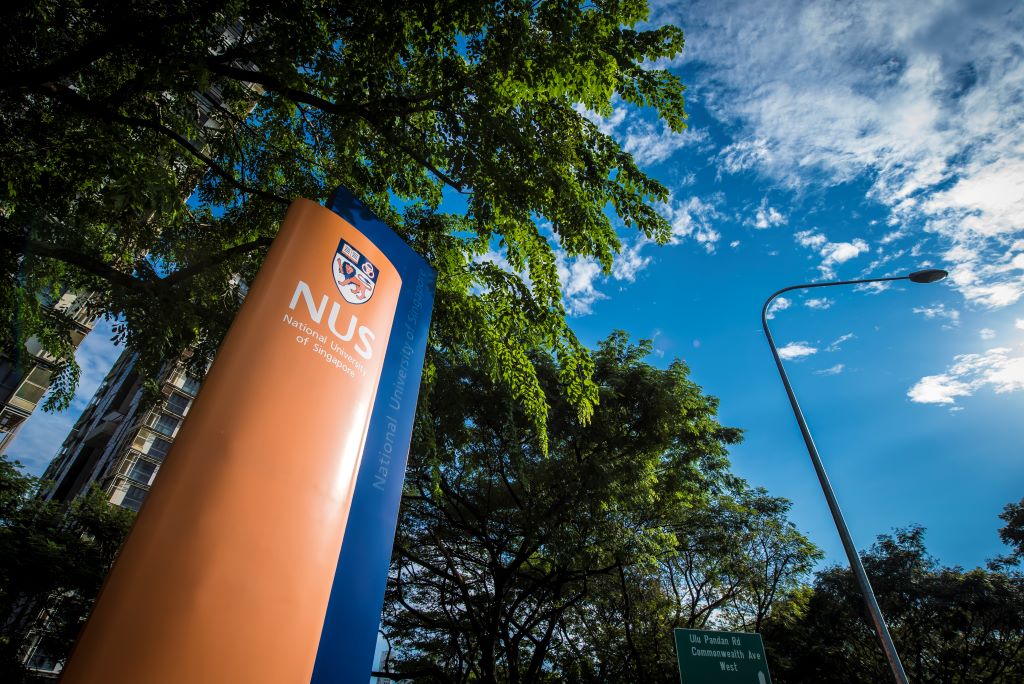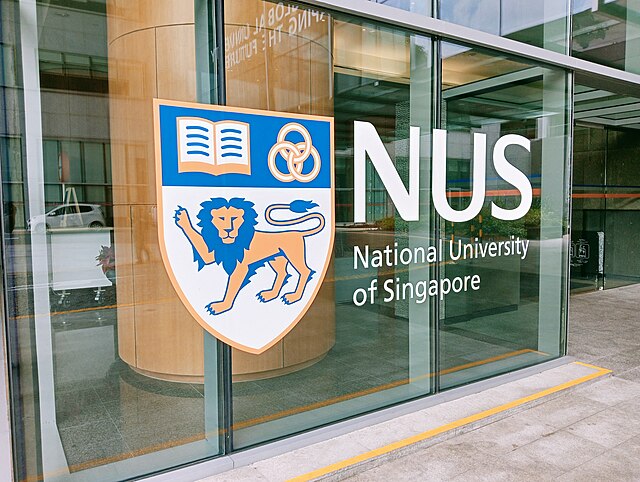In February 1966, then Prime Minister of Singapore Lee Kuan Yew opened the seminar “The role of universities in economic and social development” at the University of Singapore.
He spoke about the need for teachers, administrators, and other professionals vital for post-independence Singapore.
He stressed the importance of having strong science and technology faculties to boost a nation’s productive capacity.
At the end, he said: “I would like to remind my nationalists that having a national university
means more than just having nationals manning that university.
It means an organism which responds to the needs and the challenges of our time in this particular part of the world and in this society. And when we succeed in producing an unending and self-generating corps of men who can do this with ever-increasing quality in standards, then we have succeeded in establishing civilised standards for a satisfying community in the post-independence phase.”
Fast forward to 2025, and the National University of Singapore consistently ranks among the global elite, often top in Asia.
This rise says a lot of things — just like much is said about the nation’s transformation from an impoverished fishing village to one of the wealthiest societies on earth in just a generation.
Above all, it has cemented a perception of high standing. By usual measures – research output, global rankings – the National University of Singapore is seen as a formidable institution in Asia, if not the world.
But to say rankings are the sole reason the world sees the National University of Singapore as prestigious feels shallow.
There is something deeper about this phenomenon that we should know.

Does the National University of Singapore continue to respond to the unceasing challenges of our time, as laid out by its nation’s founder? Source: National University of Singapore
What is prestige?
Why and how is something prestigious? For many, it’s defined as being respected and admired. For others, it means more, particularly in the realm of exclusivity.
Let’s use the Veblen effect as an example. Named after the economist Thorstein Veblenterm, it describes a situation where demand for goods, usually luxury ones, goes up despite the price increasing, seemingly contradicting the law of demand.
In another, more recent, example: Labubus. The collectable plush toys in blind boxes marketed by China-based retailer Pop Mart has online drops that constantly sell out within seconds despite the US$1,000 price tag.
More reason for this could be found in the studies of Max Weber. The German sociologist played a significant part in the early conceptualisation of prestige.
His three-component theory of stratification describes how social difference is determined by class, status, and power.
Weber developed this theory as a critique and expansion of Karl Marx’s theory of social stratification, which is centred around class struggle. Marx initially theorised that the world could be divided into two social classes, the bourgeoisie — the ruling class — who own the means of production and employ the proletariat — the working class.
According to Marx, the bourgeoisie exploited the proletariat, selling the latter’s hard labour and receiving hefty profit, while the working class scraped by with minimal wages.
Half a century later, Weber produced his own theory, which argued that society couldn’t be split into just two groups. He claimed that status and prestige played an important part in how much respect, admiration, or social recognition a person or group commands.
This theory was further expanded in 1947, when researchers Cecil C. North and Paul K. Hatt produced a groundbreaking survey for the National Opinion Research Centre (NORC). It was one of the first systematic attempts to quantify the social standing of various occupations in the US.
They asked participants to rank occupations based on their perceived “social standing” or “prestige.” This gave birth to the concept of occupational prestige, in which certain careers were viewed as having higher social standing than others.
While the survey never revealed the exact occupations, sociologists have discussed several factors that tie into occupational prestige.
Professions that require extensive education, such as doctors or lawyers, for example, are generally considered to have higher occupational prestige compared to jobs that require less formal education, such as janitors or factory workers.
Later on in the 1980s, French sociologist Pierre Bourdieu significantly expanded on Weber’s theory of social stratification. Bourdieu proposed that individuals could possess different forms of capital, which can be converted into power and prestige.
His theory revolved around cultural capital — knowledge, skills, education, and how people presented themselves to those around them. How they spoke, connected with others, and how much authority they commanded were all valuable forms of cultural capital — in short, a form of prestige.
Applying to these universities, the name that’s on your degree is just as much another form of capital.
The right name can open doors and make one seem more competent or sophisticated.
This is something that these students from the National University of Singapore know all too well:

Akshaya Vajpeyarr previously did her bachelor’s at the Sri Ramachandra Institute Of Higher Education and Research. Source: Akshaya Vajpeyarr
Society’s perspective on prestige: how it matters when choosing a university
Excelling in education is a big must-have in Asian families, particularly those who immigrate from less developed to more developed nations. For them, investing in their child’s education is just as much about learning as it is about proving their worth, establishing their place, and ensuring their children are seen as equals in a new land.
Coming from an Asian background herself, Akshaya Vajpeyarr knows this reality all too well. For her, family and societal expectations have always been part and parcel of how she views education.
There is always a strong emphasis on academic achievement, often seen as the key to stability, success, and social status.
Many Indian students like Vajpeyarr are familiar with this concept — they would be pressured into medicine, engineering, law, or business even if their interests lay elsewhere.
And they would be influenced, directly and indirectly, to go to “the best schools.”
So, when the National University of Singapore became an option for Vajpeyarr, her family encouraged her to seriously consider it.
“What really motivated me to choose NUS Singapore was its strong reputation, both globally and across Asia. It’s consistently ranked among the top universities, and that definitely stood out,” Vajpeyarr said.
But there was something else that made the National University of Singapore the exclusive club she wanted in on: “a focus on innovation, research, and making a real impact beyond the classroom.”
“I wanted to be in a place that would challenge and inspire me, and the university offered that,” she said.
After joining the National University of Singapore, the concept of prestige then evolved further for Vajpeyarr — it became more than just a name and a rank.
“It’s not just about having great facilities, but about creating a culture that encourages you to ask questions, explore ideas, and challenge the status quo,” she said. “There’s this mindset of pushing boundaries, and that really shapes how students think and learn.”

Gerald Lau is one of many Asian students who chose to remain in Asia for university. Source: Gerald Lau
Prestige is another form of opportunity
For undergraduate student Gerald Lau, the National University of Singapore’s prestige stems from the opportunities it promised, just as Bourdieu theorised.
Lau had been passionate about biology and life sciences since a young age, and had always felt like Singapore offered more ways to conduct research in these fields. After completing high school, he scored a scholarship to study at the National University of Singapore and is now enjoying a rigorous, fulfilling programme in life sciences.
“Studying here in NUS definitely provided me with the opportunity to widen my horizons,” said Lau, who hails from neighbouring country Malaysia. “However, its prestigious ranking is definitely one of the factors, too.”
Then there’s the term “winning in life” which is what an education at the National University of Singapore has been seen to entail.
A degree here acts as a stepping stone for students like Lau to work and live in a country with the highest standards on many fronts, from livability to salaries.
It’s esteem by association — where you are among winners.
“Singapore is one of the countries where you can see rapid development, urbanisation, and it has a strong focus on research compared to other countries in Asia,” said Lau. “People around me really encouraged me — if you’re smart enough, if you’re brilliant enough, then it’s always about going to Singapore.”

Luu is proud to share his expertise with the young lawyers at the Vietnam Judicial Academy. Source: Vinh Luu
Prestige leads to community, customers, and closed deals
Vinh Luu, an arbitrator from Vietnam, earned his graduate certificate in international arbitration in 2024.
He had heard about the course through one of Vietnam’s top arbitrators, who was a graduate of the National University of Singapore.
“He is a well-respected man in the community, and he told me that I should go for the programme like he did,” said Luu. “He said that I would gain a lot from the experience – not just knowledge, but also opportunities to network with other international arbitrators.”
As he worked full-time with foreign investors, he saw a stint at NUS as a way to boost his global credentials.
“NUS graduates are very well-respected even here in Vietnam,” Luu affirmed. “Having the name in your CV makes a lot of difference.”
Specifically, Luu gained new clients, which continues until today.
“It was a good opportunity for me to develop my relationships with potential clients during my studies. I actually got my first Singapore client after three months of living there,” he said.
“Through legal professional events, I talked about Vietnam, about my law firm, my experience abroad and with the National University of Singapore. As a result, people decided to invest in Vietnam, and asked for my support.”

